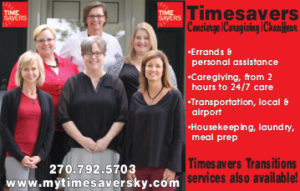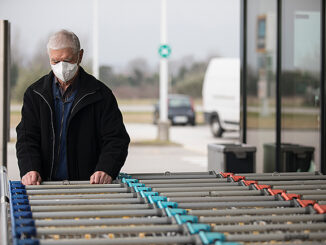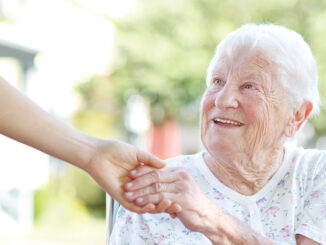
by Elizabeth Downing
Recently, we’ve had an avalanche of information and new understanding surrounding education – statistics, policy, funding, and the value we place on education as a society. It has been eye opening, disturbing, inspirational, jolting, and yes, educational. As this debate has raged, I’ve thought a lot about the lasting impact of education and how the foundation in which we are willing to invest with our children will determine the strength and stability of our communities.
I also believe the same thing about the need to educate ourselves on issues confronting our aging population. The foundation in which we are willing to invest – our time, our energy, our resources, our attention – with the aging will just as surely determine the strength and stability of our communities. If our priority is quality of life, we must be proactive in teaching ourselves and each other about how to achieve the goal. We all must become both teacher and student.
The theory of proactive education is particularly important with dementia care. “Dementia” covers a range of illnesses and medical conditions. And the word itself, along with the most frequently diagnosed dementia, Alzheimer’s disease, is a bit scary. We don’t want to think our loved ones may be beginning down the progressive road of dementia. But our desire and denial will not prevent the disease. It won’t even help us deal with it.
What is the one thing that will help, both in the short run and the long run? Education. This doesn’t necessarily mean classrooms and lectures, although there are resources available to anyone who investigates. Education in this context doesn’t even mean you have to do a great deal of reading, although there are a number of fine tomes on the shelves of libra
ries and bookstores.
Educating yourself about dementia means you are willing and open to the idea your journey will be unique. Your experience with dementia will not be identical to any other. It will, however, be made somewhat smoother by a proactive leap into learning about warning signs, communication, behaviors, strategies, practical issues, resources, support groups, medications, diet and exercise regimens, facilities, and on and on. The sheer volume of information can be overwhelming.
Here’s where I go a little off the rails from some other approaches. I don’t want you to wait until you or someone you love has been diagnosed with mild cognitive impairment, Alzheimer’s disease, Lewy body dementia, or any other form. I don’t want you to react only when it touches your own home. I want you to jump in now.
I want you to see all the members of our community, our churches, our schools, our literary clubs, our women’s organizations, our public service groups, whose families are impacted by dementia right now. And I want you to open your eyes wide and understand that we all need to learn how to communicate and interact with people with dementia; we all should be invested in their quality of life; we all should be attuned to daily contact with people with dementia in both business and socially; we all would ideally have the capability to step in for a friend to help with their family member any time they needed. Because these numbers are going to continue to grow. We cannot avoid what is right in front of us.
Now, I know this seems a little preachy. The thing is, that’s okay with me. I get a little preachy when I’m passionate about something, and I’m passionate about the benefits that will grow with more and more education about dementia. In the next 20, 30, and 50 years, we will thrive as a society only to the degree we recognize the never-ending value of education.
I get a certain number of words in these pieces I get to write. I’m choosing to use a chunk of that number to provide resources and contact information to let you get started on your educational adventure. Do it for yourself, do it for your family, do it for you neighbor, do it for your favorite teacher or coach, do it for your children and grandchildren. It will matter.
Dementia Resources
alz.org – Alzheimer’s Association (take note of the Community Resource Finder)
nia.nih.gov – National Institute on Aging
teepasnow.com – Teepa Snow is a leading educator on Alzheimer’s and other dementia care
alzheimersreadingroom.com, administered by Bob DeMarco
dementiatoday.com
The 36 Hour Day, by Nancy L. Mace, M.A. and Peter V. Rabins, M.D., M.P.H.
A Dignified Life: The Best Friends Approach to Alzheimer’s Care: A Guide for Family Caregivers, by Virginia Bell and David Troxel
Learning to Speak Alzheimer’s by Joanne Koenig Coste and Robert Butler
Adult Enrichment classes through Community Education. Information at www.commed.us.
About the Author:
Elizabeth Downing is Director of Outreach for Timesavers Concierge, Caregiving & Chauffeur in Bowling Green, Kentucky. A 1982 graduate of WKU, Elizabeth is also an attorney, but found her passion in advocating and providing care for older adults and those with special needs. Elizabeth’s blog, at www.mytimesaversky.com/blog, seeks to raise awareness of issues relating to aging and caring for aging loved ones, and to let people know they are not alone in the journey. She has recently completed a Certificate in Care Management from Boston University, and facilitates two family caregiver support groups each month.




